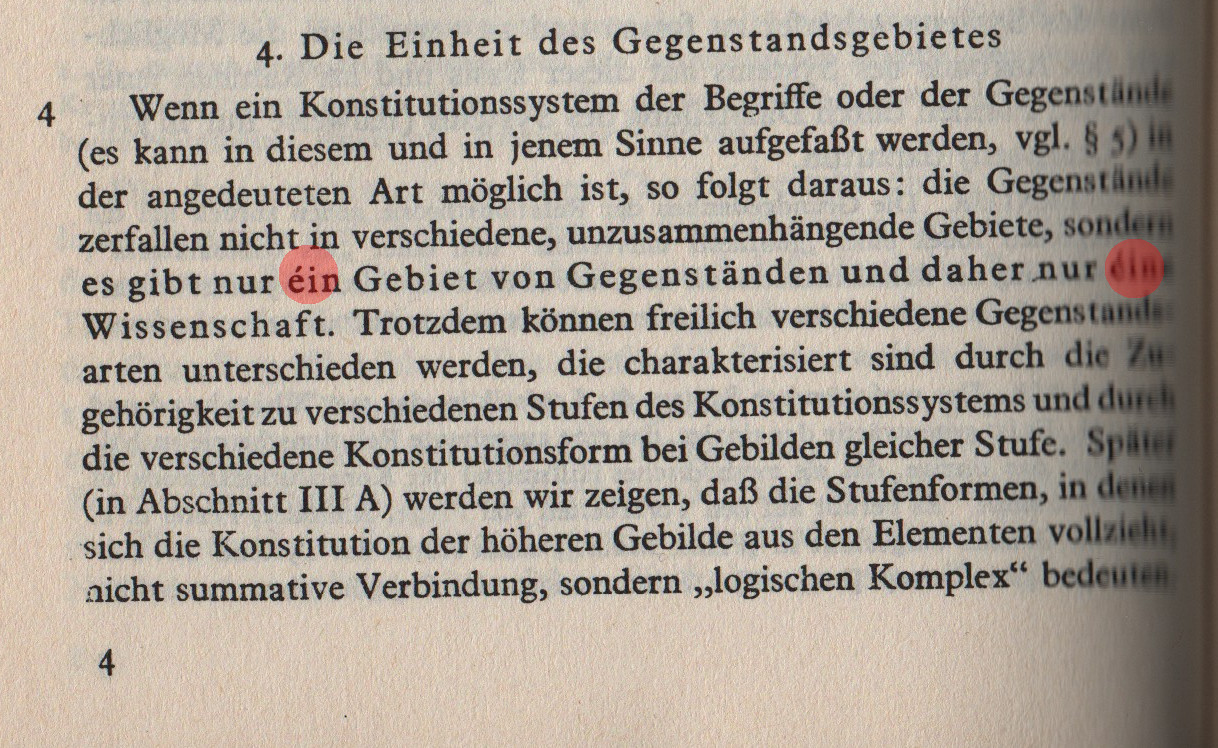I have also found the following quote from Carnap (bold face by me):
Wie soll die Wissenschaft zu intersubjektiv gültigen Aussagen kommen, wenn alle ihre Gegenstände von einem individuellen Subjekt aus konstituiert werden, wenn also alle Aussagen der Wissenschaft im Grunde nur Beziehungen zwischen „meinen“ Erlebnissen zum Gegenstand haben? Da der Erlebnisstrom für jeden Menschen ein anderer ist, wie soll da auch nur éin Satz der Wissenschaft objektiv in diesem Sinne sein, d. h. für jedes Individuum gelten, wenn es von seine individuellen Erlebnisstrom ausgeht?
Taking this together with the three occurrence of ein/éin in your example, I hypothesise that éin marks the numeral one and ein marks the indefinite article (a in English). Let’s look at some examples:
Wenn ein Konstitutionssystem der Begriffe oder der Gegenstände in der angedeuteten Art möglich ist, so folgt daraus […]
Here, the wenn-condition is fulfilled, if there is a Konstitutionssystem that fulfills the requirements. There may be many of those, it does not need to be exactly one.
[…] es gibt nur éin Gebiet von Gegenständen […]
Here he states that there is only one realm of items. It cannot be two or more; it is not indefinite in the sense that he refers to an arbitrary realm out of many possible (where you would use the indefinite article).
However, this is only a hypothesis based on six examples that needs to be tested by somebody who has access to the whole text.
In general, the double meaning of ein in German is hardly a problem, since it is most often clear from context which one is meant. However, I can imagine that this issue arises more often in philosophical texts.
Other ways to solve this disambiguity are to use:
genau ein – exactly one (this is frequently used in mathematics)
1 (this is frequently used in board and card games, since it takes less space than genau ein and there is little space on cards)
mindestens ein – at least one
nur ein – only one
In spoken language the disambiguity can be avoided by emphasising the numeral ein, which is what might have inspired using an accent as a marker.

